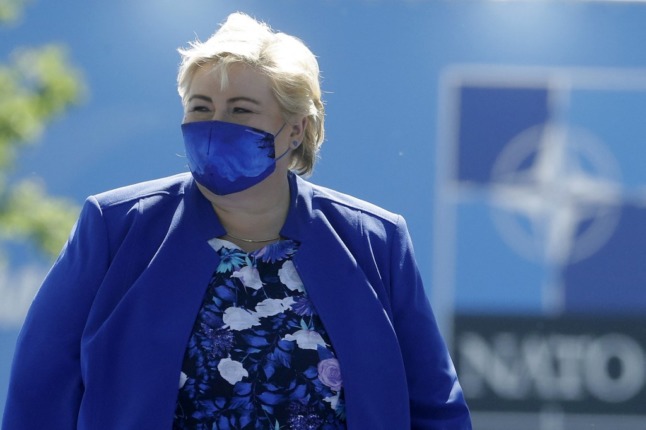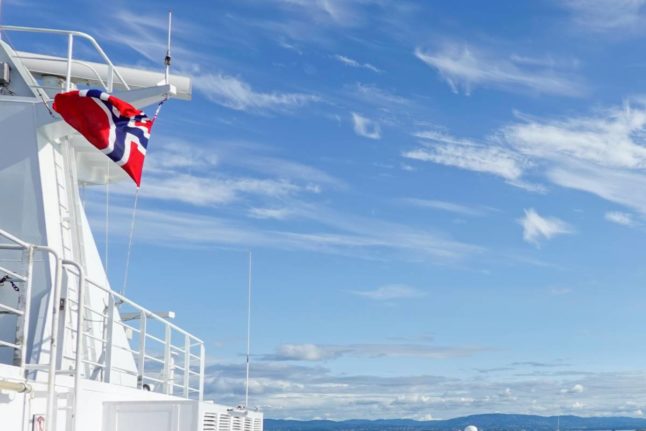Conservative leader and current Prime Minister Erna Solberg has issued seven promises to voters as part of a four-year plan if she remains in government following Norway’s general election on September 13th.
Among the promises are more private-sector jobs, shorter queues for healthcare and more affordable childcare.
Below we’ll break down what they mean for you. If you’d like to look at the party’s election promises, you can do so here.
READ ALSO: What you need to know about Norway’s upcoming election
Promise on schools
The first of the seven promises is aimed at education. Solberg has pledged that the Conservative Party will ensure that 5,000 more students complete high school.
Just under 80 percent of students complete high school or equivalent apprenticeships, according to the latest numbers from Statistics Norway.
For foreign residents with children nearing high school age, this will come as encouraging news.
Norway is already one of the top ten most educated countries in the world, according to the World Population Review. So should your children wish to enter the international job market after studying in Norway, they should be in good stead.
The drawback to this, presumably, would be more competition for university spots if they are thinking about higher education. In recent years Norway has seen record numbers of people applying to universities in Norway. More than 154,000 people applied to university in Norway this year, and Solberg’s promise will only see this increase if it comes to fruition.
More private sector jobs
Solberg has also pledged to increase the number of private sector jobs in Norway.
She has said she would work towards four out of five jobs in Norway being created by the private sector.
Most foreign residents working in Norway are employed in the private sector, so job creation in this sphere will come as welcome news if Solberg can make good on the promise.
One of the strategies the Conservatives will employ to ensure more jobs in the private sector are created is to scrap a wealth tax on working capital and launch an entrepreneurial package that aims to make starting a business in Norway easier.
READ MORE: What you need to know about setting up as a freelancer in Norway
Shorter waiting times for healthcare
Solberg has said that the Conservatives will aim to reduce waiting times by around two weeks over the next four years.
She also defended the privatisation of healthcare in Norway and said that the Conservatives would set the goal of offering 100,000 patients free choice of treatment by 2025.
Norway’s healthcare systems will also become increasingly digitised as part of the crackdown on waiting times. This may make it harder for new residents to settle and access healthcare. In most cases, a Norwegian national identity number and or a level four security electronic ID that requires an identity number to log in will be required to sign in to digital public services such as healthcare.
READ ALSO: Everything foreigners in Norway need to know about electronic IDs
Greater equality and social diversity
The Conservatives have also set several goals and proposed various strategies under this promise that could affect the lives of foreign residents.
Firstly, they will ensure that more children are offered daycare spaces when they turn one and abolish the parental payment for families with three children in the same kindergarten. This is in addition to raising the child benefit by 8,200 kroner for children up to six. You can read about the child benefit here.
Secondly, they will aim to ensure that three out of four refugees will be in work or education one year after completing the introduction programme.
They will also try to improve the standard of Norwegian language teaching by introducing testing and assessments for providers.
On the topic of language, they will also raise the competence requirement for Norwegian in citizenship applications.
READ ALSO: What you need to know about Norway’s citizenship test
For potential homeowners, Solberg will also look to expand the rent to own scheme.
READ MORE: Is it better to buy or rent property in Norway
The Conservatives will try and simplify the Norwegian Labour and Welfare Administration’s (NAV) services for job seekers.
Climate promise
In its four-year plan, the Conservatives describe climate change as the biggest problem the world faces.
By 2025, Solberg wants all new cars and vans sold in Norway to be emission-free and have said that the CO2 tax will be stepped up to 2,000 kroner per tonne in 2030.
This means anyone planning on buying a car should bear this in mind when thinking about their purchase.
Furthermore, Solberg has said that if she stays on as PM, the Conservatives would also create more jobs in the green sector.
Freedom to live where you want
This doesn’t apply to immigration, which the Conservatives have pledged to take a measured and controlled approach to. This instead applies to having the infrastructure available to live and work in Norway, whether you choose.
The party has pledged to offer high-quality education in more rural areas and making sure all houses have access to both high-speed broadband and 5G coverage by 2025.
The party didn’t make any specific pledges regarding the opportunity to work from home or how they will give those living in rural areas greater access to private-sector jobs.
Better policing and security
Norway will focus strongly on tackling online hate crime, trolling and abuse under another Solberg government and will work on improving policing in rural areas.
They will aim to increase recruitment for the police in rural areas twice as much as in cities.
Norwegian police will also aim to increase victim aftercare.
What have critics said?
Labour deputy leader Hadia Tajik has called the promises “anaemic”.
“There are quite empty promises after eight years of Conservative politics. I think people see through this. We see the results after eight years in government,” Tajik told newspaper VG.
Centre Party leader Trygve Slagsvold Vedum has also hit out at the promises.
“These are small ideas and centralising solutions,” he told VG.
He also said that Solberg had failed to do enough to create private, green jobs.
Labour leader and Solberg’s biggest rival in the election, Jonas Gahr Støre, has said the promises would only benefit the rich and privileged.



 Please whitelist us to continue reading.
Please whitelist us to continue reading.
Member comments